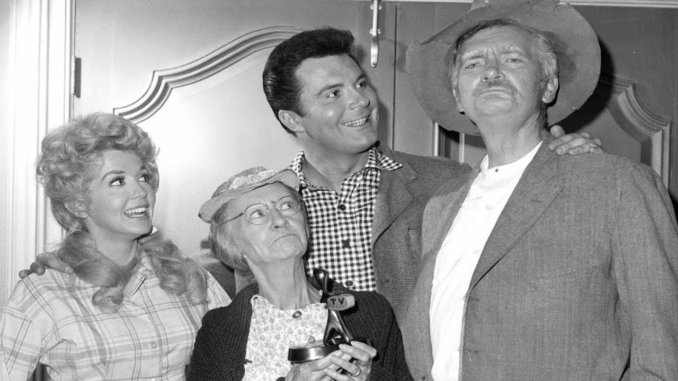
When The Beverly Hillbillies debuted, not everyone was ready to cheer. Critics were quick to dismiss it as lowbrow and simplistic, a rural sitcom pandering to stereotypes. Yet the show’s popularity would prove far stronger than negative reviews—as one of the highest-rated television programs in America throughout its run.
Early reviews criticized the show for being too rustic in its humor, too naive in its characters, and too sentimental. Some reviewers griped that the Clampetts’ mannerisms were exaggerated, their dialects overplayed, and the plots too predictable. Highbrow publications compared it unfavorably to more “sophisticated” shows of the early ’60s.

But the ratings told a different story. Week after week, families tuned in. Viewership climbed. The Beverly Hillbillies wasn’t just a hit—it was a phenomenon. It became one of the most watched sitcoms of the decade. Audiences found comfort in its simple moral arcs, country charm, and fish-out-of-water antics.
Part of its success was relatability. For many viewers, the Clampetts represented values: loyalty, kindness, resilience. Even when moving into a mansion, they never lost their manners (as odd as they might seem), their love for family, or their connection to simpler living. In a time of social upheaval, the idea of staying true to one’s roots had strong appeal.
Moreover, viewers loved how the show juxtaposed wealth and simplicity—not to mock, but to celebrate contrast. The opulence of Beverly Hills filtered through the Clampetts’ sincerity, producing humor that was sometimes absurd, sometimes touching.
Over time, The Beverly Hillbillies gained respect even among critics. Retrospectives and historians now often credit the show with pioneering rural comedy and influencing later shows that blend humor, culture clash, and heart.